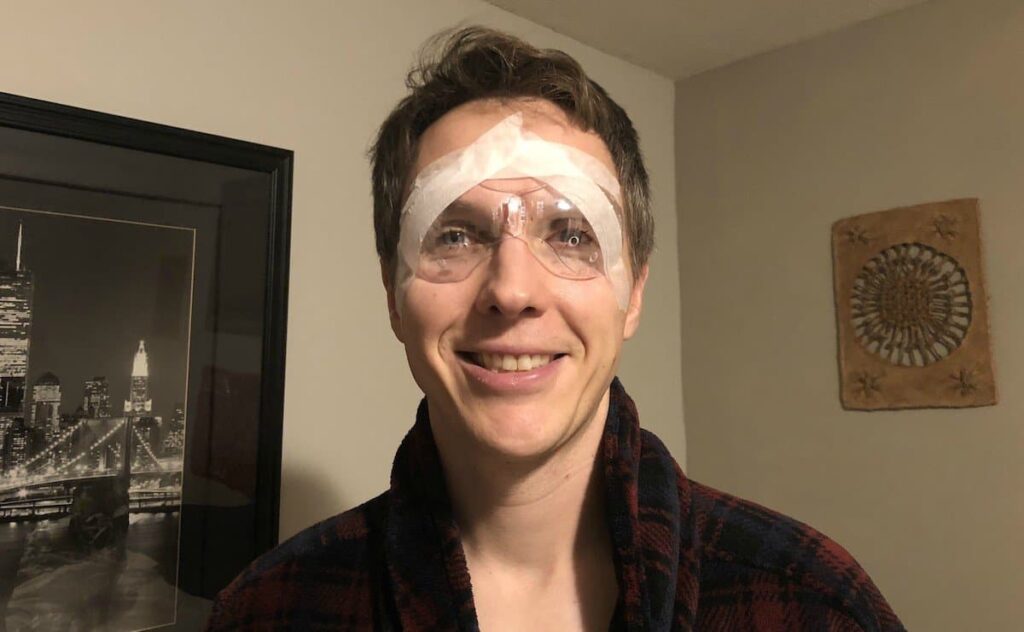Your health, safety, and general quality of life are significantly impacted by your vision. Every two years, you should undergo a regular eye checkup to monitor your visual health. In the meantime, you should make an appointment with your Sydney eye clinic straight soon if you encounter any of the following issues:
1. Suddenly losing vision
You should seek emergency medical assistance if you suddenly lose vision in one or both of your eyes since this might be a sign of a stroke or another dangerous problem. Any partial vision loss, such as blind spots, tunnel vision, or a “curtain” obstructing a portion of your field of vision, has to be treated right once by a good Sydney eye clinic. A retinal detachment or closed-angle glaucoma, both of which are dangerous disorders that need to be treated right once, might be indicated by whole or partial vision loss.
2. Eye Illness
If you suffer an eye infection, see a good Sydney eye clinic as soon as possible since they may become worse very rapidly. Redness, discharge from the eye, discomfort, a sense that something is in the eye, impaired vision, and sensitivity to light are all indications of an eye infection. The majority of the time, all that’s required to clean up the situation is a round of antibiotic drops.

3. Eye Floaters
It’s normal to have eye floaters, which are the wavy lines in your vision that are more obvious when you stare up at the sky or a white wall. These lines are unimportant and shouldn’t cause you any concern. However, you should make an appointment with a good Sydney eye clinic if you’ve never noticed them before and now do, or if you’ve seen a significant increase in eye floaters. These might indicate a detached retina along with shadows or flashing lights in your peripheral vision, which if treated immediately could result in blindness.
4. Eye Discomfort
It is never a good idea to push through pain when you have eyestrain! Although mild conditions like dry eye may cause eye discomfort, it can also be a symptom of trauma or a more severe disease like a damaged cornea, glaucoma, or even eye cancer.
5. Squinting
Squinting indicates that you need vision correction since it takes effort to see well. You may choose to use eyeglasses, contact lenses, or even corrective surgery, depending on your choices and the results of your eye exam.
6. Light Sensitivity
If you start to feel bothered by glare or light, this may be an indication of cataracts, particularly if it’s present with other cataract symptoms including double vision in one eye, fuzzy vision, haloes around lights, and night blindness. Light sensitivity may also be a symptom of ocular migraines or the serious eye condition uveitis.
Additional Health Issues
Although the following health conditions seem to have nothing to do with your eyes at first look, they might be caused by a variety of diseases that can be found during a normal eye checkup.

7. Continual Headaches
Sometimes all it takes to get rid of a headache is to change the lighting in your office or give your eyes an hour to rest. A trip to a Sydney eye clinic might also reveal more severe conditions like glaucoma, astigmatism, or long-sightedness, which will need more intensive care.
8. Diabetes (or Being High Risk for Diabetes)
One of the key components of managing diabetes is keeping an eye on your eye health since diabetes may harm the retina and eye examinations can detect retinal damage before vision loss occurs. have no symptoms? Even if a person has excellent eyesight, they might still have diabetes. In other cases, an eye exam has allowed the condition to be discovered for the first time.
9. Allergies
Allergies may sometimes cause itchy, stinging eyes. Artificial tears, antihistamines, and limiting exposure to allergens may be used to treat mild eye allergies at home, but prescription eye drops and other treatments, such as allergy injections, may be required to treat more severe responses. However, itchy eyes may also be a symptom of conjunctivitis or pink eye, which may call for antimicrobial eye treatments.
Organizing a yearly eye exam
It is safe to arrange an eye test in its place if you are not exhibiting any of the aforementioned signs. Typically, depending on your risk factors, age, and if you presently use vision correction aids like eyeglasses or contact lenses, this involves seeing your Sydney eye clinic for a thorough examination every year or two.
Children
Routine eye examinations, beginning with a first check when the kid is six months old, are essential to ensuring that your child is prepared for learning since more than 80% of the material in classrooms is delivered visually. Then, prior to the child starting school and at age three, follow-up eye tests may be planned.
Up to the age of 18, children without risk factors may continue to have regular eye exams every two years. On the other hand, children at risk may need an eye test before their first birthday and may require more regular checkups throughout their infancy.
Risk elements consist of:
- Developmental delays; a history of low birth weight or early delivery; an infection of the mother during pregnancy (such as herpes, a venereal illness, rubella, etc.);
- Turned or crossed eyes
- High refractive errors with a history of eye illness in the family
- Physical ailment or sickness
Annual eye checkups for kids who use glasses or contacts should also be planned.

Adults
Individuals between the ages of 18 and 60 should get complete eye examinations at least every two years, while adults 61 and over should have yearly eye exams to ensure a lifetime of good vision. Comprehensive eye examinations should be arranged more often for “at risk” people.
Risk elements consist of:
- A history of eye problems in the family (macular degeneration, glaucoma, etc.)
- Diabetes or high blood pressure
- A physically demanding job or one that presents eye risks
- Using over-the-counter or prescription medications with visual adverse effects;
How to Prepare for a Sydney Eye Clinic Exam
The specific tests performed during an eye exam will vary based on what your Sydney eye clinic deems appropriate to fully understand the state of your eyes at the time. A Sydney eye clinic exam may take an hour or more due to its intricacy and the number of tests you must endure.
You could likely go through the following vision and Sydney eye clinic tests as part of a thorough exam:
Visual acuity tests are used to assess how sharp your vision is. Color blindness tests are used to identify inherited color vision deficiencies. Cover tests check the coordination of your eyes. Ocular motility tests look at how well your eyes can track moving objects, switch between two targets quickly, and focus on two different objects with accuracy.
Retinoscopy and the Stereopsis Test are two ways to gauge depth perception and estimate eyeglass prescription, respectively.
More to read: Common CPAP machines available in Australia
